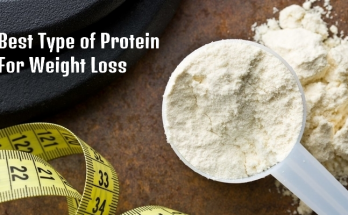Whey protein is one of the most popular nutritional supplements worldwide, often associated with fitness and muscle building. But a common question many people ask is, “Does whey protein make you fat?” Let’s debunk the myths and understand the facts about whey protein and its impact on weight management.
Whey Protein: A Nutritional Powerhouse
Whey protein is derived from milk during the cheese-making process. It is packed with essential amino acids, making it a complete protein source. It is widely used by athletes, fitness enthusiasts, and even those looking to lose weight due to its numerous health benefits.
However, as with any food, its impact on your body depends on how you incorporate it into your diet and lifestyle.
Does Whey Protein Contribute to Weight Gain?
The short answer is: whey protein doesn’t inherently make you fat. Weight gain occurs when you consume more calories than your body burns, regardless of the source of those calories. Here are a few scenarios to consider:
- Excessive Calorie Intake: If you consume whey protein shakes in addition to your regular meals without adjusting your caloric intake, the extra calories can lead to weight gain over time.
- Sedentary Lifestyle: If you’re not physically active and take whey protein regularly, the excess protein might be stored as fat, just like any other calorie surplus.
- Added Ingredients: Some whey protein products come with added sugars or artificial flavors, increasing the calorie count. Always check the label before purchasing.
Whey Protein for Weight Loss
Interestingly, whey protein can also aid in weight loss when used correctly. Here’s how:
- Boosts Satiety: Protein is known to keep you full for longer, reducing overall calorie intake. Whey protein shakes can serve as a healthy snack or meal replacement.
- Supports Muscle Maintenance: During a calorie deficit, your body might lose muscle mass. Consuming whey protein helps preserve muscle, which is crucial for maintaining a high metabolic rate.
- Increases Metabolism: Protein requires more energy to digest compared to carbs or fats, slightly boosting your metabolism.
For effective weight loss, consider products that are low in carbs and fats. Explore our curated list of weight loss products for options that align with your fitness goals.
Whey Protein for Muscle Building
For those aiming to build muscle and lose fat simultaneously, whey protein is an excellent choice. It provides the amino acids needed for muscle repair and growth. Additionally, when paired with strength training, it enhances muscle recovery and performance.
If you’re looking for a whey protein that supports both muscle building and weight loss, try our RedScience Full Stack Whey Protein. It’s packed with essential nutrients like BCAAs, glutamine, and multivitamins, making it a comprehensive choice for achieving your fitness goals.
How to Use Whey Protein Effectively
To maximize the benefits of whey protein without unwanted weight gain, keep these tips in mind:
- Monitor Your Caloric Intake: Ensure that your total daily calorie consumption aligns with your fitness goals.
- Choose the Right Product: Opt for whey protein products with minimal added sugars and fats.
- Pair with Exercise: Combine whey protein intake with regular workouts to balance calorie intake and expenditure.
- Stick to Recommended Servings: Avoid overconsumption. Typically, 20-30 grams of whey protein per serving is sufficient for most individuals.
Conclusion
Whey protein, when consumed as part of a balanced diet and active lifestyle, does not make you fat. Instead, it can be a powerful tool for weight management, muscle building, and overall health. The key lies in understanding your body’s needs and using whey protein strategically.
Whether your goal is to shed extra pounds, maintain weight, or build muscle, the right whey protein can help you get there. Explore our range of weight loss products and muscle-building whey protein to find the perfect match for your fitness journey.
Take control of your health and fitness today!




